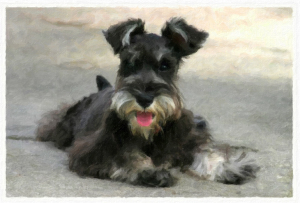iisis tA Malchi Dog Is a Great Addition to Your Family
If you’re looking for a small dog to add to your family, a malchi may be a good choice. These designer dogs are a mix of Maltese and Chihuahua breeds and combine traits from both parents.
These dogs are playful, gentle, affectionate and goofy. They are also easy to train.
Origin
The malchi dog is a new designer breed, created by crossing the feisty Chihuahua with the laid-back Maltese. This small lap dog is a good companion for those who want a dog that doesn’t need a lot of exercise but can be alert and bark at things to let them know they are there.
These dogs look a little different depending on which parent they take after, as their coats can be long or short. They also have long, folded ears that resemble those of the Maltese.
These dogs don’t shed as much as other small breeds, but you should brush their coats two to four times a week. You should also be sure to brush their teeth as they can get irritated easily.
Characteristics
The malchi is a new designer breed created by combining the feisty Chihuahua with the laid-back Maltese. This breed is small, requires minimal exercise, and makes a good companion for elderly owners or those living in apartments.
This dog is a playful, goofy, and affectionate creature.
It takes after both his parent purebreds with a belief that he is much bigger than his tiny body suggests.
The dog very protective of his family and has a high spirited personality. The malchi can be aggressive if he feels threatened or neglected.
He isn’t a good match for small children and should always be supervised around them. He may also become snappy or snarly when annoyed, so early socialization and training are recommended.
Temperament
The malchi dog is a surprisingly low maintenance breed that requires little more than a regular bedtime routine and some quality playtime at the dog park. They need a good 30 minutes of exercise per day for optimal health. They are curious creatures and will happily investigate just about anything that catches their attention. A smattering of toys, puzzles and training will keep them entertained for hours on end. The best part about this dog is their undivided devotion to you and your family. It is no wonder that the Malchi is considered one of the more popular canine companions. The following tips and tricks will help you to keep them happy and healthy for many years to come. The Malchi can be a challenging breed to train, but with the right tools and a bit of patience they are an enjoyable companion for most.
Health issues
The malchi dog is a small breed of dog that is generally healthy and long-lived. They are prone to certain health problems, however, and it is important to adopt a puppy from a reputable breeder.
They are also prone to patellar luxation, an orthopedic condition that affects the kneecaps of dogs. This problem is particularly common in small dogs and can be dangerous if left untreated.
Their tiniest size makes them prone to fractures from rough play and being sat on. This can lead to serious injuries, so it is important to be careful when handling them.
They are moderate shedders, and brushing them regularly will help to remove tangles and keep their coat free of debris. They will also need regular baths to minimize staining from food, grass, and other things that have a strong color.
Training
Malchis are intelligent dogs and they love to learn, but they can also be stubborn at times. The best training method for a Malchi is to use positive reinforcement and rewards when they do something well, such as when they sit.
These small dogs are not as easily potty trained as other breeds, so they will need frequent trips to the potty outside your home. You should find a spot where you can take your Malchi pup to relieve himself, and then give him a treat when he does so.
These low to moderately active dogs need about 30 to 60 minutes of walks per day or a good training session two times a day to keep their bodies and minds healthy. They will need a mix of mental and physical stimulation, but don’t forget to keep them occupied inside the house as well!




